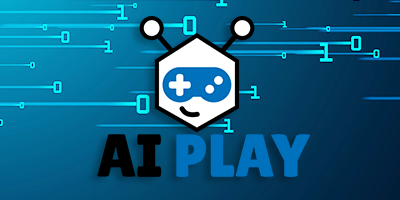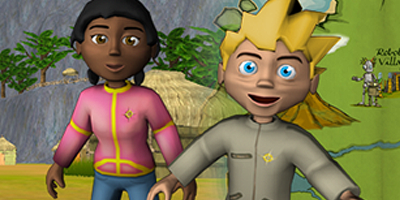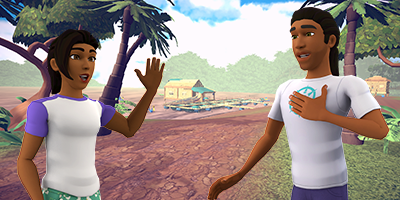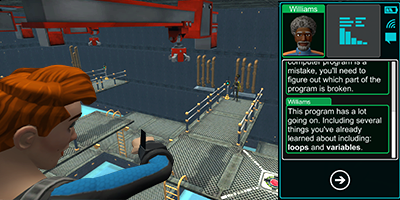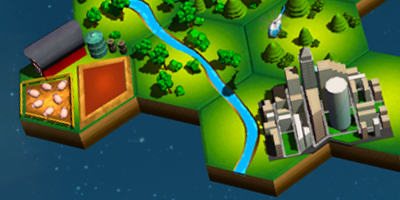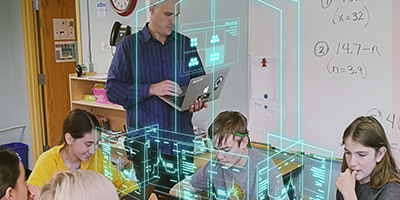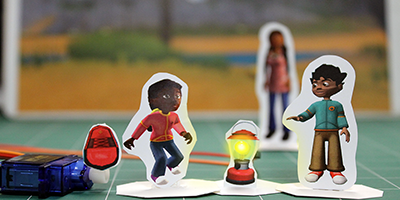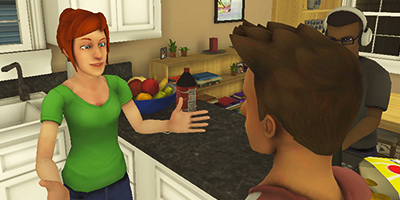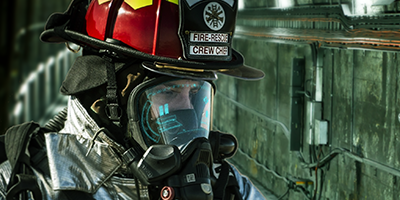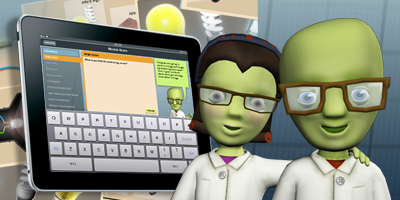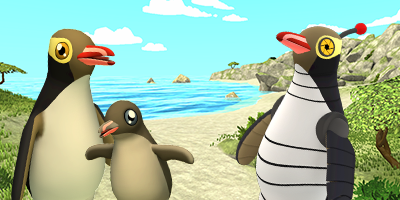Projects
AI PlayThe AI Play project investigates the use of digital game design and playful experiences to introduce middle-grade students to AI concepts. We are designing and developing the AI Play learning environment, integrating it into summer camps and school-based programs, and investigating the effectiveness of the program for cultivating rural middle grades students’ knowledge and interest in AI. |
Crystal Island: Lost InvestigationThe Crystal Island: Lost Investigation project explores game-based learning for integrated science and literacy education for middle school students. Featuring a science mystery in which students play the role of an infectious disease investigator deployed to a tropical island, Crystal Island: Lost Investigation supports both science problem-solving (microbiology) and reading comprehension (complex informational texts). |
Crystal Island: Uncharted DiscoveryThe Crystal Island: Uncharted Discovery project investigated supporting students in learning cognitively challenging skills such as understanding space-to-map and map-to-space relations through a 3D game-based learning environment. Implemented as an engaging action-adventure game focusing on landforms, maps, and models, Crystal Island: Uncharted Discovery featured an inviting storyworld that introduces students to complex problem-solving, map interpretation, and navigation skills. |
EcoJourneysThe EcoJourneys project is conducting foundational research on integrative models of game-based and problem-based learning through the design and development of an immersive computer-supported collaborative learning environment. EcoJourneys employs adaptive scaffolding to support groups of up to four students as they construct explanations, reason effectively, and become self-directed learners. |
EngageThe Engage project designed and investigated a narrative-driven 3D game-based learning environment that incorporated block-based programming and computational modeling activities to promote computational thinking as well as broadening interest in computer science. The Engage curricular strategy was driven by the K-12 Computer Science Framework and the Next Generation Science Standards to focus on core disciplinary ideas in life sciences for middle grades as well as science and engineering practices that support computationally rich science activities. |
Future WorldsFuture Worlds integrates game-based learning technologies with interactive surface displays to enable hands-on explorations of environmental sustainability in both science museums and classrooms. Learners solve sustainability problems by investigating the impacts of alternative environmental decisions in a 3D simulated environment. Future Worlds also serves as a testbed interactive exhibit for investigating museum visitor engagement with multimodal learning analytics. |
Health QuestHealth Quest is a collaborative partnership between North Carolina State University and the University of California, San Francisco, committed to increasing middle school students’ interest in health science careers. The project features an interactive Career Adventure Game, a Student Discovery Center, and a Teacher Resources Center. Through immersive gameplay, students are able to virtually explore health science careers and help virtual experts solve challenging problems in their fields. |
I-ACTThe I-ACT project seeks to explore how AI can be leveraged to support teachers as they engage students in rich, deep, and collaborative inquiry learning in K-12 STEM classrooms. I-ACT is designing and investigating intelligent cognitive assistants that augment teachers by providing context-sensitive guidance and insights that are driven by AI-based multimodal learning analytics to enable teachers to focus on supporting students in deep, collaborative, and meaningful learning. |
InfuseCSThe InfuseCS project is investigating how an innovative narrative‐centered maker environment can be used to support computationally-rich science learning for upper elementary students. This project combines digital storytelling, computational thinking, and hands-on maker activities to create effective and engaging learning experiences in physical science while engaging students in computational thinking practices. |
INSPIREThe INSPIRE project focuses on the design, development, and investigation of a self-adaptive personalized behavior change system for adolescent preventive healthcare focused on reducing alcohol use. INSPIRE enables adaptive health behavior change narratives that are tailored to individual adolescents by a novel reinforcement learning system called ChangeGradients. |
IntelliVisorThe IntelliVisor project investigates how intelligent user interfaces should be designed and developed to facilitate optimal task performance for emergency responders using virtual reality as a test platform. The project features a rich set of virtual emergency response scenarios and a data-driven heads up display that facilitates access to critical task-related information. |
LeonardoThe Leonardo project designed and investigated intelligent virtual science notebooks for upper elementary science education. Featuring a virtual tutor that provided problem-solving advice, Leonardo enabled students to create and experiment with virtual models of scientific phenomena. Emphasizing inquiry-based learning in the physical sciences, the Leonardo project supported interactive scientific modeling in 4th and 5th grade classrooms. |
PrimaryAIThe PrimaryAI project leverages an iterative design, development, and refinement process to design and develop an artificial intelligence (AI) science curriculum and immersive problem-based learning environment to introduce AI concepts and ethics into upper elementary science classrooms. PrimaryAI enables students to collaboratively learn about AI by engaging in problem-based learning in which they solve science problems with AI tools designed specifically to support upper elementary students in inquiry-based science adventures. |

